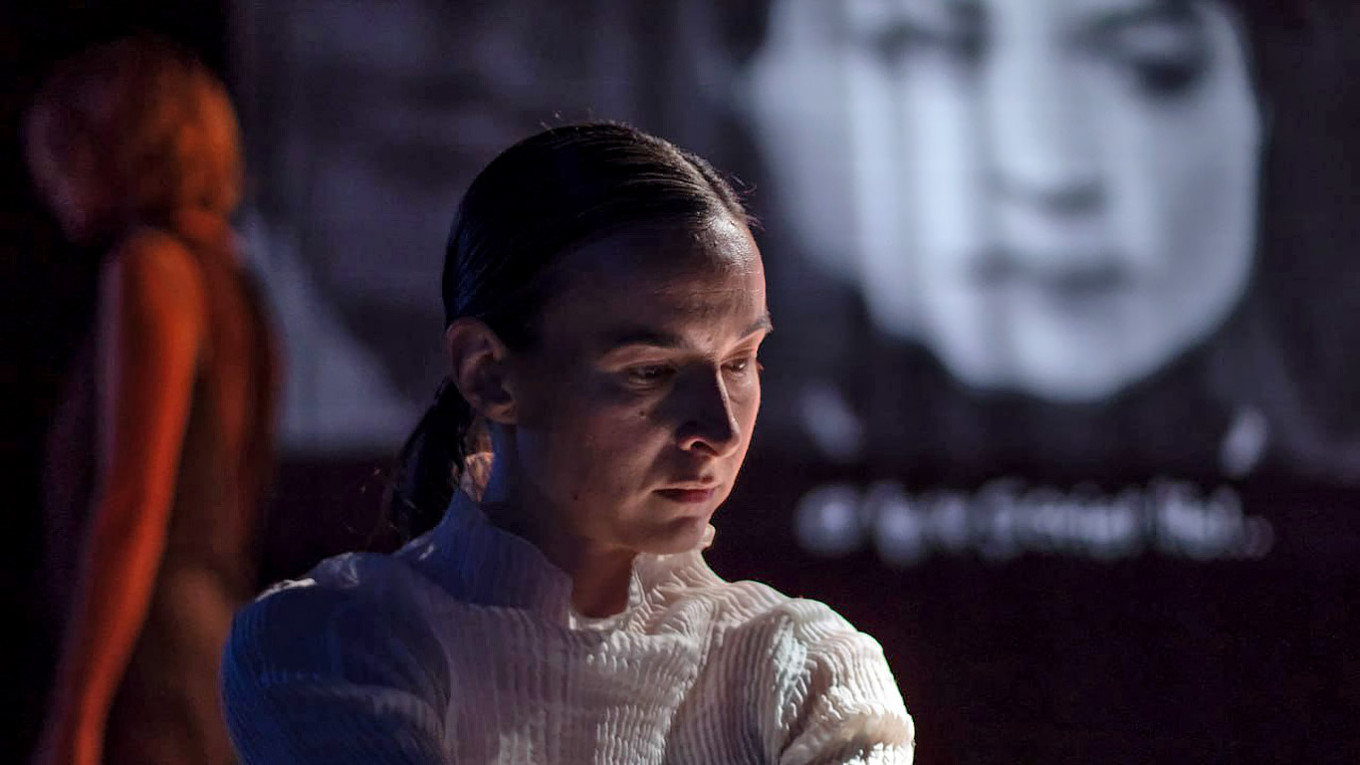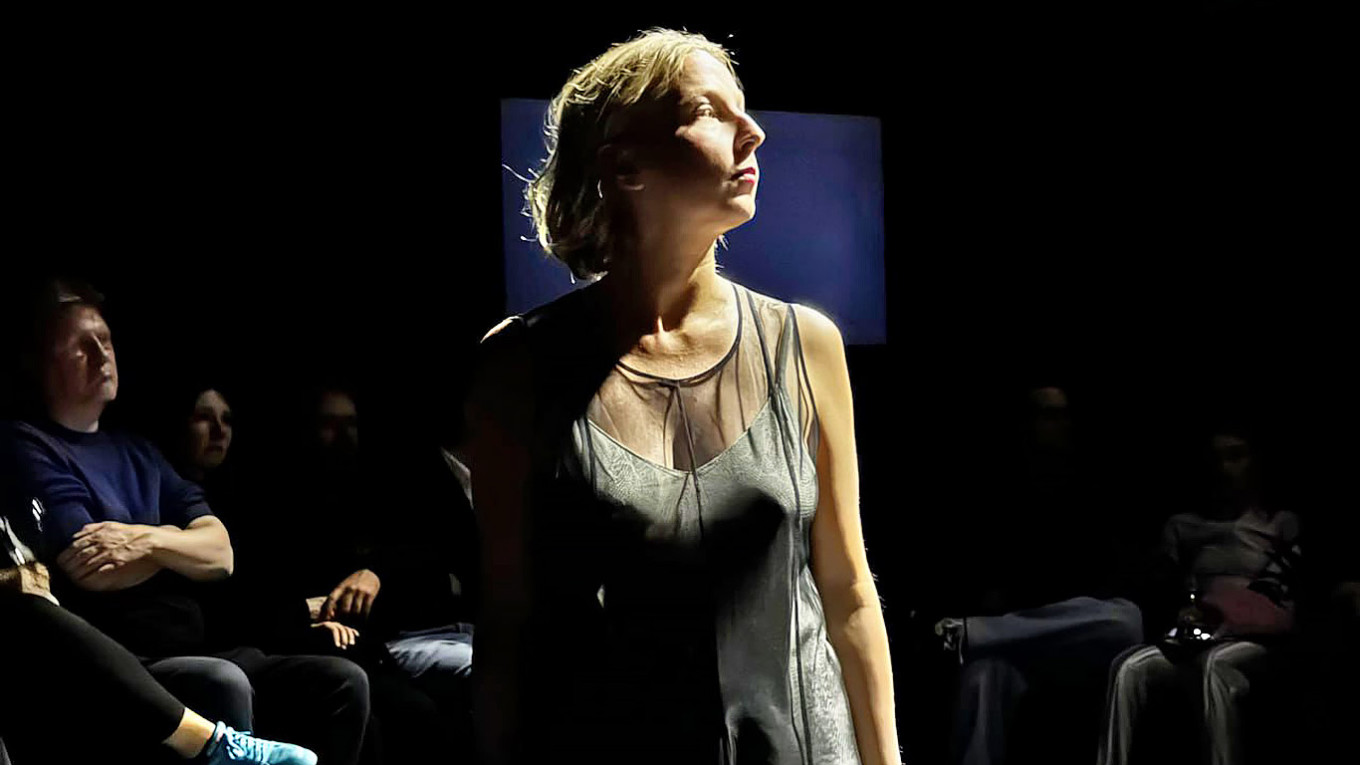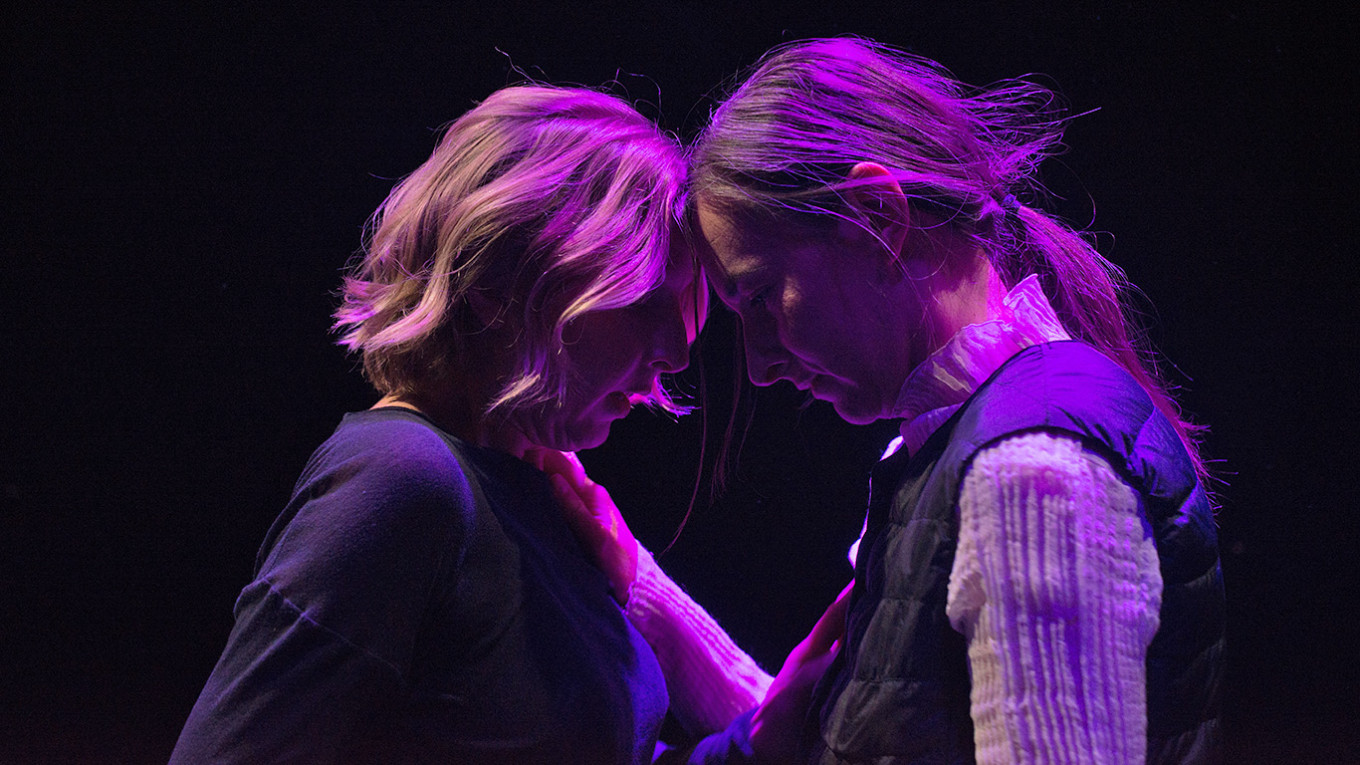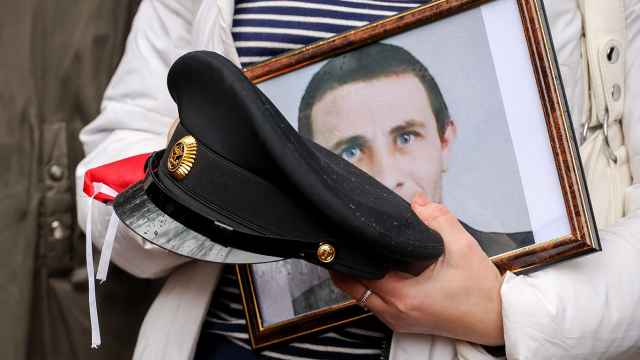BERLIN – “Alexander*a” is a multimedia performance that immerses audiences in the world of pioneering revolutionary and politician Alexandra Kollontai.
As one of the first female diplomats in history, Kollontai also became a powerful advocate for women's liberation within the early Soviet government.
Directed by Vika Privalova — a multidisciplinary artist born in Russia who is also a director, activist and a part of the Feminist Anti-War Resistance movement — the performance delves into Kollontai's passionate political ideals as well as her inner complexities and contradictions.
The play seeks to raise questions about the role of women today and how they are affected by historical events, conflicts and war, Privalova told The Moscow Times.
Premiered in English, with Russian excerpts and German subtitles in Berlin last week, “Alexander*a” the performance presents Kollontai addressing the “people of the future” and guiding them through her memories, where personal reflections and historical events intertwine.

Kollontai was a Russian revolutionary, politician and diplomat who played a significant role in the early Soviet government after the 1917 Revolution. She was one of the first women to hold a government position, serving as the People's Commissar for Social Welfare and representing the Soviet government abroad, including in Norway and Mexico.
Kollontai was also known for her radical views on gender, marriage and family, promoting the idea of free love and the importance of women's independence.
The play's team of creators consists of artists, producers and actors who faced political exile from Russia.
The Moscow Times spoke to Privalova about her vision of the performance — and of women in the modern world:
MT: How did the idea of turning to the figure of Kollontai come about?
VP: I've been working with the figure of Kollontai for several years. My first play based on Kollontai's diaries was in 2017. Two years ago, I also wanted to create a play about a 20th-century woman. It so happened that the premiere date coincided with the start of Russia's full-scale invasion of Ukraine — February 24, 2022. The premiere took place at Theatre Praktika in Moscow and it was an intensely emotional experience for everyone, especially the actors.
MT: You recently had the play’s premiere in Berlin. To what extent did you need to adapt it for a broader audience?
VP: The play has changed in both form and content. Originally, it was a piece where we journeyed through various moments of her life and the labyrinths of her memory — a kaleidoscope of different parts of her life, from childhood and marriage to political work, and so on. Now, the text has been completely reworked and remixed, meaning I’ve reassembled these fragments. We now have an “artificial Kollontai” who represents the public-facing Kollontai: strong, constructed and very structured. And there’s an inner persona we see on stage, traveling through her memories.

The language also shifted significantly since we have a mixed audience and didn’t aim to bring in only Russian-speaking viewers. Additionally, we created a multilingual solution — not just as a technical move, but as a creative choice, because Kollontai herself, as a diplomat, spoke several languages. I wanted to integrate and incorporate various voices, and the voices that speak to her alternate between Russian, English and German, as she spent some time living in Zurich.
The questions raised during the play are universal and this story speaks to everyone. For example, we had a viewer who doesn’t speak Russian at all and has lived in Berlin her whole life. She said that it wasn’t even necessary to understand everything — the experience is almost like listening to music. That means it was not essential to grasp every detail and it was more about the emotional essence: how a woman acts as a monumental figure in history, but deeply intimate when it comes to her inner experiences.
MT: What message would you like to convey through the play?
VP: This is a performance about seeing history’s cycles and learning from them. It’s about personal choices and how they ripple outward. The play also reflects on the place of women within the patriarchal system, within [political] conflicts and violence as well as the Russian context that people lived in 100 years ago — we can see not much has changed today. There are many intersections with the present day. This play shows that history repeats itself and that we do not learn from our mistakes or the past.

For example, the figure of Kollontai has almost been erased from Russian history. This is an important fact and we still need to reflect on why that happened. These are all pieces of the same picture we are currently observing. It’s more of a play about how we haven't processed the past.
I also wanted to raise these questions: ‘Where is the place of women today? What happens to women during all these historical events and political war conflicts?’ These questions are still relevant, just like 100 years ago.
“Alexander*a” will be performed next at Ballhaus Prinzenallee in Berlin on Dec. 19 and 20. Tickets are available here. Donate to the project here.
Vika Privalova will speak at Women Against the Kremlin, a groundbreaking gathering of women leaders standing against war and authoritarianism hosted by The Moscow Times in Amsterdam on Nov. 26.
A Message from The Moscow Times:
Dear readers,
We are facing unprecedented challenges. Russia's Prosecutor General's Office has designated The Moscow Times as an "undesirable" organization, criminalizing our work and putting our staff at risk of prosecution. This follows our earlier unjust labeling as a "foreign agent."
These actions are direct attempts to silence independent journalism in Russia. The authorities claim our work "discredits the decisions of the Russian leadership." We see things differently: we strive to provide accurate, unbiased reporting on Russia.
We, the journalists of The Moscow Times, refuse to be silenced. But to continue our work, we need your help.
Your support, no matter how small, makes a world of difference. If you can, please support us monthly starting from just $2. It's quick to set up, and every contribution makes a significant impact.
By supporting The Moscow Times, you're defending open, independent journalism in the face of repression. Thank you for standing with us.
Remind me later.







